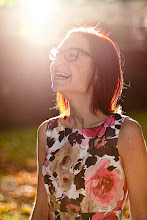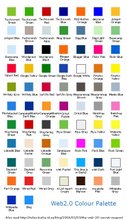 Theory of Facebook
Theory of FacebookRemember when you first discovered Facebook and SNSs and thought that you were the original one, just having a laugh and catching up with friends? Au contraire, you were (and now are) part of a whole cultural shift in social dynamics about how people meet, greet, stay in touch and interact on a daily basis.
SNSs have become more than just a way to indicate a 'high-school esque' popularity. Instead, they have emerged as significant collaborative social spaces that contain more important social connections and subtle cues for presentation and interaction. This could be viewed as a 'hyper' set of dimensions and intimacies. Hyper, because they are fast occuring and reflect the excessively active aspects of the social dynamics. But I would contend that they are more immersive and seductive than a hyper set of behaviours. Yes things occur in the fast lane of life, but these have real life (and real time) consequences.
What used to be part of an 'always on' mobile phone culture has evolved as a continuous social presence. You may log out of Facebook, but you're still there. Or at least your profile page is. Still there, interacting away on your behalf until when you next log in.
And that time that you accepted an even invitation or became a 'fan' you thought you were acting out of self interest? No, not at all: More likely you were proving you credentials as a socially compatible and active individual, or broadcasting your interest and friendship activity to others in your network.
And so we have new compulsion to act, reciprocate, communicate and keep our networked Friends close to hand.
From a sociological take this has consequences for not only how sociability is enacted, but the types of socially networked individuals that are 'out there'.
So here's my take on some key aspects of Facebook (and other SNSs) that together form a Facebook theory if you will:
Cheerleader
Typically over-buff in profile image, more photos than friends (both totalling over 1000s though!). Limited information about 'education' and 'work'. Other than looking pretty. Less interested in what their Facebook friends are doing and more compelled by the latest wallpost from another buff body.
Friend-farmers
User whose more natural territory is MySpace. Still at school the aim is to achieve friend status target of the alloted 5000.
Exposed
The type of person who is always online, always has updated their status update in the last ten seconds, always the first to accept invitations. Their life is there in all its glory, and only obscured by periods of cache time outs, broadband malfunction or lack of wireless. Of course then they are surfing via their iphone.
Poke battles
This is similar with how we behaved when we were back at school and in the playground. So when you had a crush on someone ignoring them and pulling their hair were prime indicators you thought they were cute! The poke is a bit like a signal that says ''hi' i'm here', but can also stand in for 'i think you're really cute, but can't think of a wall post/message etc to captivate your attention'.
Fan status
Being a fan used to mean paying homage to a particular band, singer, artist, author etc. in general you would have posters on your wall (real bedroom wall, not metaphorical Facebook one). On Facebook to 'become a fan' is to symbolise a part of our tastes, our likes as much as our dislikes. E.g. a fan of Gordan Brown is unlikely to think fondly of Boris Johnson.
Social networking is born
SNSs happened when they did for specific reasons: Individuals want to stay in touch, they like to stay in touch and enjoy sharing connections with others. Chat rooms were risky unknown situations, instead Facebook offers real friends opportunity to act like friends when they are not together too. This is a strange situation, as if friends are real, they will hold a connection whether on Facebook or not, but then people are always looking for reassurance about relationships and look for new (fun) ways to keep up to date with one another.
Profile performance
All profile pages have a level of staged performance about them. With images carefully selected and put in place and extra information and applications added to make pages look more interesting. Although all are staged, some are more staged than others with overall sense of the theatrical with too many 'which character are you' and 'rated or slated' profiles. This gives off the idea that the identity is all about being attached to other Facebook resources rather than the connections and friends in networks.
All together now
There's a level of emotionality at the heart of any connection; whether friend, acquaintence, family or peer. On Facebook there's a feeling of togetherness, put in place by accepted friend invitation and shared network membership. This is a ritualised part of daily social life already in place at school, college, university and workplaces. On Facebook rejecting a friend request carries as much social weight offline as it does on the site. So too the highs and lows of being together on a SNS can be comparable to the complex sets of connections with others away from these networks.
Image: Mark Ainley.com


No comments:
Post a Comment